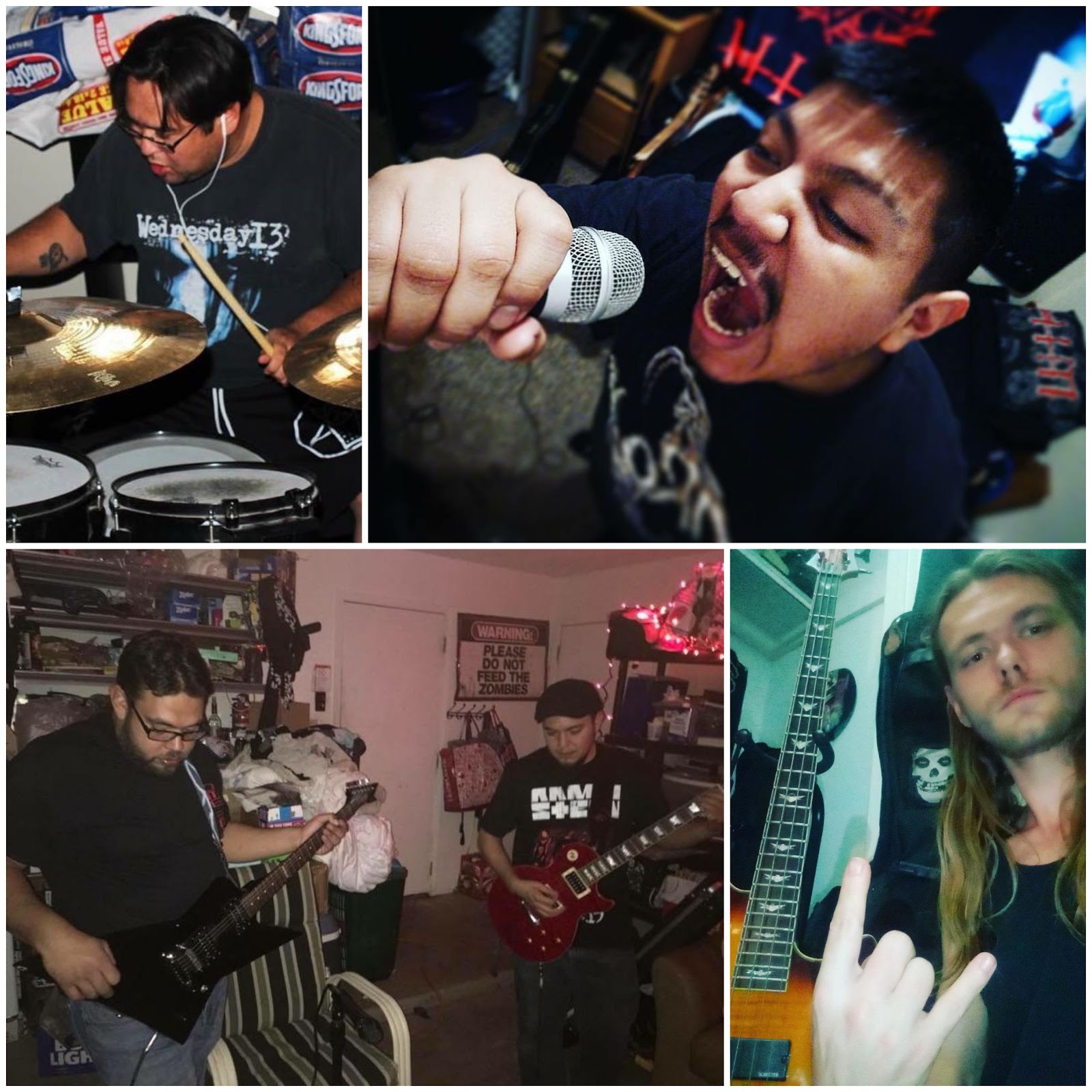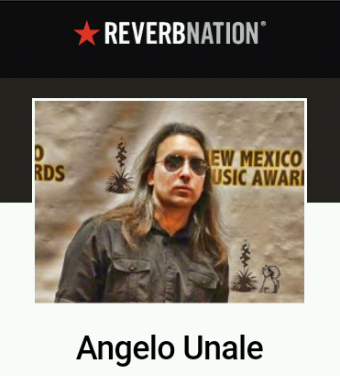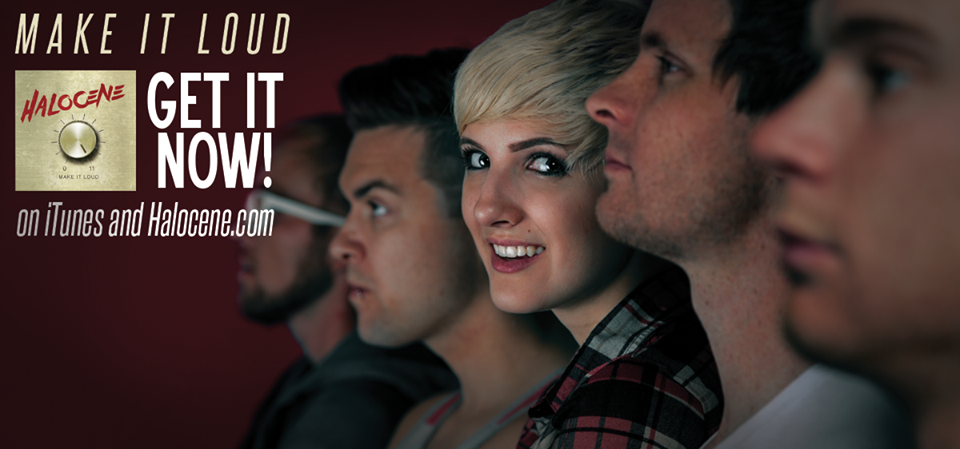Vinyl. 8-tracks. Cassettes. CD’s. MP3’s.
The format of how music is recorded has greatly changed over decades. For Albuquerque artists, today’s digital age brings both challenges and opportunities for how they promote themselves and get their releases to the public.
“CD’s, I think are still superior because you’re getting something that is built to sound good; the highest possible quality sound as opposed to an MP3 or something you download that’s this itty, bitty little tiny format,” said Angelo Unale, a rock musician in New Mexico.
That doesn’t mean Unale doesn’t welcome new online opportunities for artists. He’s among the thousands who are promoting their music digitally and on music streaming services as internet platforms are what audiences are increasingly turning to, he said.
One local music fan who plays guitar, drums, and has worked with other musicians, Santana Ortiz is among those who prefers to purchase online through music streaming services.
“The last time I bought a physical CD was probably about six months ago and the only reason I bought it was because I was at a concert and it was a band I really liked,” said Ortiz. “Otherwise, I’ll just stream it via Pandora or Spotify; at any given time, I’m probably subscribed to at least one premium music source and it’s cheaper than paying for the full album and you have access to it at all times.”
With so many digital platforms available today, some artists see this as a big benefit.
“Being on as many platforms as possible is important today just so you can reach a wider audience — and having these platforms, we can reach people that can resonate and relate to what we’re putting out,” said Eddie Rios, guitarist for local band, Nightmare.

Digital platforms take a cut of an artist’s album sales: iTunes is 30%, Bandcamp takes 15%, and streaming services are on a per play revenue basis where only 40% is left for the artists after everyone else gets their cut.
“I think this makes sense from a business perspective but it’s also really problematic for those who are just starting out in the music industry,” said Ortiz.
Despite the hardships artists face they seem to understand this and are willing to compromise.
“It seems fair because if you’re going to use their platform, their database, their media, they’re going to take this much from you which is understandable because we’re using their source and services,” said Nakota Sherman, Nightmare’s vocalist.
“The reason so many small-scale artists are willing to use sites like iTunes that take such a large cut is because of the traffic that it gets,” said Ortiz. “If someone searches the alternative rock genre and your band pops up, there’s a chance they’ll say ‘hey, let me sample this and see if I want to buy it’ whereas smaller sites probably aren’t getting that same amount of traffic.”
Other internet sites are more for an artist to get their name out there and get more personal support from fans.
“There’s sites like Patreon where people can donate right to the band and I like that because on there, you aren’t really selling anything – it’s the people saying ‘we like what we hear, give us more of that’,” said Rios.
A larger platform that smaller artists in New Mexico are using is Reverbnation.
“Sites like Reverbnation, you can just put your stuff up and let others know to go check it out on there,” said Unale, who is currently ranked #8 in the rock category in New Mexico.

“Eventually, I would like to get some stuff on Reverbnation so that way it does have exposure because right now we only have rough cuts out on YouTube and Facebook but on (Reverbnation) it’s going to bring it to a whole nother level,” said Forrest Bowman, Nightmare’s drummer.
A feature that Reverbnation has is a trending page which appearing on is a big deal for local artists.
“It was inspiring and I felt honored to be one of the trending few,” said Audrianna Walker, a local rapper that goes by the stage name, Treez of the 505. “I made that video myself so that was another happy point in that it was seen as good enough to be put in that collection,” Walker said. “Not a lot happens in New Mexico so when attention is brought to our state, I get excited.”
While promoting their releases on these digital platforms, artists will try to encourage listeners to buy the album — as either a CD or a file download — directly from their own websites in order to make the most profit.

Promotional image for Halocene’s third album. Small bands have to include the digital album on other platforms but also encourage fans to buy it directly from them. Photo provide by Halocene
“For myself, personally, I’ll do both because it kind of needs to be done,” said Unale. “The digital age has taken over regardless if anyone likes it or not. That’s the way it’s going to go but the old school CD will never go out. As long as it’s available, they’ll buy it; people will always come back to that stuff just like they came back to vinyl.”
Deciding on which format to pursue can be tough for a band, especially when they have yet to release any music. Nightmare is a New Mexico band currently in this dilemma.
“We want to be on the digital format as well, but with the physical copy, we put in our time for that; to show people what we’ve done, what we look like, lyrics and comments because then you get more of an idea of who the band may be,” said Bowman.
“It’s an extension of the music,” added Rios.
As a listener, Ortiz said there may be issues with smaller bands promoting their own websites to try and gain the most revenue.
“They’re not going to get as much traffic on their own sites unless people are looking specifically for them but in terms of inexpensive sales, that’s probably the best way to do it,” Ortiz said.
Another business aspect that an artist has to consider is if the production of a physical album is worth the cost it takes to manufacture as opposed to putting it up digitally.
“I think going digital probably saves them money in the long run as opposed to the cost of a physical production of a CD,” said Ortiz. “They run into the issue of are we going to sell enough through this platform to make money for ourselves or will it be a blow to their financial situation as a whole rather than a benefit to it.”
Unale agrees as it is cheaper for an artist to get their music out there as they upload their music right away to reach a mass quantity of people, he said.
Despite this a report came out a few months ago that physical albums were out-selling digital albums for the first time since 2011, Unale said.
”People want to go back to that,” he said.
Another avenue that smaller artists use to help get their name out there is the creation of cover songs of already established artists. Covering popular music and posting them on sites such as Spotify and YouTube can be beneficial but has consequences.
“We don’t really make any money on the covers. In fact all the money goes to publishers anyway,” said Bradley Amick, guitarist of the band, Halocene. “So, the way record labels should act is they should embrace YouTube and covers because we literally make those artists hundreds and hundreds of dollars.”
Ortiz argues that small bands should get some portion of the revenue when it comes to cover songs.
“If they get enough traffic to the song, if it’s different enough in terms of creative changes to the lyrics or instrumentals, then I do think that it’s fair that they do get some of the profit,” said Ortiz.
“I think the (financial) cut should go the artists and writers of the actual song instead of the record label,” said Unale, who has put out cover songs as well.
Amick said money would be nice but getting good exposure has value too.
“We just get views, clicks, and maybe new fans. That’s what we hope for. So, it seems like a win/win situation to me,” said Amick.
“I think it’s a fair trade off because it also shows fans that you aren’t just one genre, one band; you’re out there in these other areas,” said Sherman.
“Also, you’re potentially bringing something older to a new generation so that gets renewed interests to that original artists. As long as your crediting the original source, it should be all good,” added Rios.
With this also comes with performing the songs live in order to grow their fan base.
“One of the most fun things about going to a concert is being able to hear a song you know and sing along to it so if bands throw in a popular song in their set, it gets those people’s attention and can further their fanbase,” said Ortiz.

As the industry continues to progress forward in the digital era, artists will have to continue promoting themselves in innovative ways in order to keep growing their audience.
“I think one thing to keep bands going today is playing live. Being on platforms such as YouTube is important but I also see it as ‘hey, here we are in front of your face’,” said Sherman.
“I think local musicians are going to have to fight tooth and nail, especially in this area,” said Ortiz. “I’m hoping we’re going in a positive direction with all the technology we have available. It is easier for smaller bands to get their material out there. Also, now bands can reach out to potential fans by saying ‘hey, I see you like these bands, we’re similar – you should check out our stuff’ and as this has happened to me with a band, I think it greatly helps.”
“Ultimately, we write music for ourselves and only for ourselves; if people enjoy it, awesome. If they don’t, that’s okay too, it’s not for everybody,” said Rios
“Honestly, I just want someone to make it so the world can realize how much talent is really here,” said Walker.
You can follow Kenya Gable on Twitter